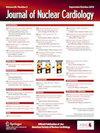ChatGPT能否回答患者关于核应激试验和18f -氟脱氧葡萄糖PET检测心肌炎症的问题?
IF 3
4区 医学
Q2 CARDIAC & CARDIOVASCULAR SYSTEMS
引用次数: 0
摘要
背景:压力测试采用了几种方法,并需要特定的患者准备。18f -氟脱氧葡萄糖正电子发射断层扫描(FDG PET)是疑似心脏结节病和心内膜炎患者诊断和风险分层的重要工具[1-3]。有必要改善患者获得有关心脏检查的问题,以确保正确遵守指示。我们试图评估ChatGPT在回答有关压力测试和心脏FDG PET炎症扫描的问题方面的有效性。方法和结果:我们生成了58个关于压力测试和心脏FDG PET炎症扫描的问题。使用OpenAI ChatGPT 3.5和40来回答问题。三位核心脏病专家将答案分为:1 =正确和完整,2=有点正确/有点完整,3 =不正确:没有益处,或4 =不正确:有害/误导信息(表一)。在分配给ChatGPT 3.5问题的回答的174个等级中,62/174(36%)是正确和完整的,93/174(53%)是有点正确/有点完整的,12/174(7%)是不正确的:没有益处,7/174(4%)是不正确的:有害/误导信息。在分配给chatgpt - 40问题回答的分数中,107/174(61%)是正确和完整的,62/174(36%)是有点正确/有点完整的,3/174(2%)是不正确的:没有好处,2/174(1%)是不正确的:有害/误导性信息。结论:ChatGPT可以对患者关于压力测试和心脏FDG PET炎症研究的问题提供一些准确的回答,其准确性随着时间的推移而提高,但在这个发展阶段,它不适合作为临床护理的主要资源。本文章由计算机程序翻译,如有差异,请以英文原文为准。

Can ChatGPT answer patients’ questions about nuclear stress tests and 18F-Flurodeoxyglucose PET for myocardial inflammation?
Background
Several modalities are used for stress testing and require specific patient preparation. 18F-Flurodeoxyglucose positron emission tomography (FDG PET) is an important tool in the diagnosis and risk stratification of patients suspected of cardiac sarcoidosis and endocarditis [1-3]. There is a need for improved patient access to questions regarding cardiac testing to ensure proper adherence to instructions. We sought to evaluate the effectiveness of ChatGPT in answering questions about stress testing and cardiac FDG PET inflammation scans.
Methods and results
We generated fifty-eight questions about stress testing and cardiac FDG PET inflammation scans. OpenAI ChatGPT-3.5 and -4o were used to answer the questions. The answers were graded by three nuclear cardiologists as the following categories: 1 = correct and complete, 2 = somewhat correct/somewhat complete, 3 = incorrect: no benefit, or 4 = incorrect: harmful/misleading information (Table I).
Of the 174 grades assigned to responses to the questions from ChatGPT-3.5, 62/174 (36%) were correct and complete, 93/174 (53%) were somewhat correct/somewhat complete, 12/174 (7%) were incorrect: no benefit, 7/174 (4%) were incorrect: harmful/misleading information. Of the grades assigned to responses to questions from ChatGPT-4o, 107/174 (61%) were correct and complete, 62/174 (36%) were somewhat correct/somewhat complete, 3/174 (2%) were incorrect: no benefit, and 2/174 (1%) were incorrect: harmful/misleading information.
Conclusions
ChatGPT can provide some accurate responses to patient questions regarding stress tests and cardiac FDG PET inflammation studies, and its accuracy has improved over time; however, it is not suitable as a primary resource for clinical care at this stage of development.
求助全文
通过发布文献求助,成功后即可免费获取论文全文。
去求助
来源期刊
CiteScore
5.30
自引率
20.80%
发文量
249
审稿时长
4-8 weeks
期刊介绍:
Journal of Nuclear Cardiology is the only journal in the world devoted to this dynamic and growing subspecialty. Physicians and technologists value the Journal not only for its peer-reviewed articles, but also for its timely discussions about the current and future role of nuclear cardiology. Original articles address all aspects of nuclear cardiology, including interpretation, diagnosis, imaging equipment, and use of radiopharmaceuticals. As the official publication of the American Society of Nuclear Cardiology, the Journal also brings readers the latest information emerging from the Society''s task forces and publishes guidelines and position papers as they are adopted.

 求助内容:
求助内容: 应助结果提醒方式:
应助结果提醒方式:


